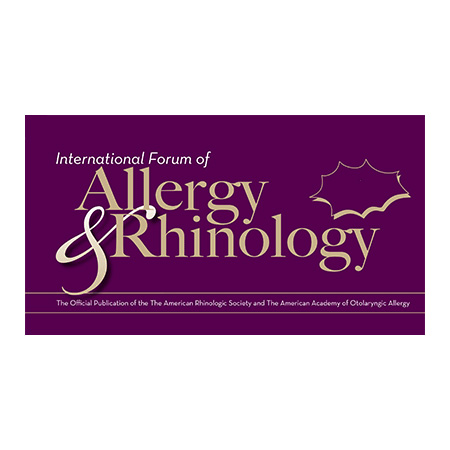Investigating Nose-Lung Crosstalk: Can the Nose Regulate Lung Immunity?
 Upper respiratory viral infections are responsible for 80% of asthma exacerbation episodes, but the underlying mechanisms are poorly understood. Physician researcher Xiaoyang Hua, MD, PhD, an associate professor in the Department of Otorhinolaryngology at McGovern Medical School at UTHealth Houston, is senior author of a recently published article in the International Forum of Allergy & Rhinology, which explores in detail the relationship between the nose and lung.
Upper respiratory viral infections are responsible for 80% of asthma exacerbation episodes, but the underlying mechanisms are poorly understood. Physician researcher Xiaoyang Hua, MD, PhD, an associate professor in the Department of Otorhinolaryngology at McGovern Medical School at UTHealth Houston, is senior author of a recently published article in the International Forum of Allergy & Rhinology, which explores in detail the relationship between the nose and lung.
“Our findings provide compelling evidence that nasal mucosa is an important immune gatekeeper for the lungs and plays a significant role in the regulation of lung immunity,” says Dr. Hua, who is principal investigator of a National Institutes of Health R01 grant that funds his research laboratory. “Our goal is to further define the molecular mechanisms of interaction between nose and lung to find new strategies to treat both inflammatory and infectious lung diseases.”
In the study, the researchers examined the impact of upper respiratory viral infections on asthma phenotypes and the underlying molecular mechanisms in a mouse model. “Basically, we’re trying to determine how a cold exacerbates asthma or wheezing,” Dr. Hua says. “Our data suggest that immune cells in the upper respiratory tract may play a role in communication between the nose and lung. Specifically, we’ve shown that upper respiratory virus infections enhance the allergic inflammatory response and airway hyperresponsiveness through a B cell-monocyte regulatory axis.
“Our goal is to find more mechanisms at the molecular level that will help us develop new treatments, including nasally administered vaccines to fight viral infections in the lungs,” he observes. “We’re not there yet, but we have very strong data to support this hypothesis about immune response in the lungs.”
Reference
Waldstein KA, Issimov A, Ganama M, Jinge V, Tilley S, Hua X. Nasal virus infection induces asthma exacerbation through B-cell-dependent recruitment of inflammatory monocytes. Int Forum Allergy Rhinol. 2024.